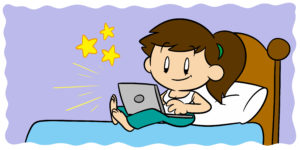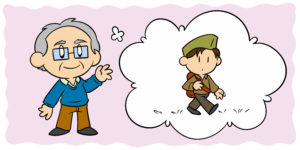Though its origins are often misattributed, the phrase ‘may you live in interesting times’ is one of those idioms that may not quite make sense the first time you hear it – what kind of a curse is that? – but which gains genuine malevolence as context accrues around it. Here we are, living in interesting times, all hoping that things get boring again very, very soon.
As COVID-19 spreads around the world and we adopt whatever measures seem best suited to ensuring the safety and wellbeing of those around us, many aspects of life have changed with alarming speed. Depending on where you live, schools may be closed, hospitals over-stretched, and professional roles drastically reshaped, if not put on pause with no clear end in sight.
There are many things we can do to help those around us, and one of the simplest is simply to stay home, self-isolating whenever possible. There are a hundred unique challenges to this seemingly simple task, but one that most artists are likely to arrive at sooner or later is the challenge of creation – you’re stuck at home, the world needs light, so how do you go about making art?
That’s the topic we’ll be tackling today, but while this article’s title might have been designed to appeal to the exact kind of writer who’s feeling the pressure to get busy, you may be surprised to know that we don’t expect these interesting times to be as amazing for authors as many have assumed…
Being creative doesn’t get easier when you’re stressed
A common refrain that’s going around at the moment is that Shakespeare wrote King Lear in quarantine, so any writer worth their salt should be hard at work on their own personal masterpiece. You may have seen this put even less kindly, in some variant of ‘if you can’t write your novel during lockdown, it turns out you weren’t lacking time – you were lacking discipline.’
While this line of thinking may be motivating to a particular breed of Type A writer (and more power to them), it’s a reductive and unhelpful way of looking at creativity in a time of generalized but still individually-felt trauma.
Yes, many of us have more ‘time’ to work at the moment, but it’s not like we’re experiencing a magical few months where there are two bonus hours in every day. Humans are social animals, and even if the effects of the current pandemic aren’t literally at your door (and my sincere best wishes if they are), you’re not immune to the psychological impact of knowing that something huge is going wrong in the world around you. If you’ve found yourself eating more, getting less sleep, being more irritable, or feeling less able to concentrate then, yes, some of those symptoms are likely down to being cooped up with your nearest and dearest, but they’re also indicators of generalized stress – even trauma.
Put it this way – if the world outside your house was on fire, you wouldn’t expect that to pep you up and make you more productive. You’d expect to be worried, distracted, and ready to jump out of your skin at the first whiff of smoke. Well, that’s not quite the situation we’re in, but in terms of our reaction, it’s not so far off.
So, what, you shouldn’t even try to write? Of course that’s not the case. Writing is an act of self-expression, and art is a comfort both for its creator and its audience in times like this. At the same time, it can be unhelpful to look at necessary social isolation as a time when you should be at your most productive – if anything, the reverse is true.
If you’ve found that the last few weeks have turned you into a writing machine then great – get working, and good luck. But if not, don’t feel like you’re missing out on an opportunity. These are not ideal circumstances for creative expression, and don’t let anyone tell you otherwise.
That’s the most important piece of advice I can offer writers at the current moment, but it’s not the only one. For the rest of this article, we’re going to discuss how to go about healthy, productive writing during a pandemic, but it’s all with this proviso: if you’re not up to writing on any given day, week, or month of this weird, demoralizing experience, there’s nothing wrong with that, and you’re not missing out on something you ‘should’ have done.
Even low energy can be managed efficiently
If you want to try writing during a pandemic, the most important thing to do is to understand your resources. We’ve covered some of the advice I’m about to give in the articles below, so while I’ll try not to repeat myself too much, more information is available there where necessary:
- How To Stop Decision Fatigue And Burnout Hurting Your Writing
- Nobody Beats The Triangle, But You Can Be Prepared For It
- Improve Your Writing With An End-Of-Year Review
First, let’s talk about decision fatigue. Decision fatigue describes the gradual loss of mental energy that occurs as you make choices through the day. It affects us all differently, and it’s just one ingredient in what makes us productive, but it’s drastically altered in times of stress, so it’s worth discussing here.
Imagine that you start every day with a set amount of ‘decision energy.’ Every time you make a decision, you spend a little of that energy. Big decisions, like buying a car or accepting a promotion, use a lot of energy, but even small decisions, like what to have for lunch or what TV show to watch next, require a little. As your decision energy wanes, you’ll start to feel fatigued, and eventually (if you push yourself hard enough), you’ll start to find it difficult to make even minor decisions.
Understanding decision fatigue is useful because it allows you to manage the flow of energy, clarifying why you may need to limit the choices you make over a single day or find ways to make the big decisions before you’re tired from all the minor choices involved in living. One great tip for writers struggling with decision fatigue is to plan out the next day’s writing in advance, allowing you to launch into writing every day when you’re still fresh rather than fatiguing you right before you get creative.
Things differ in stressful circumstances because, even though it may not be logical, we start processing decisions as more important than they were before. When you know on a deep, instinctual level that something is wrong – when part of your brain is blaring ‘DANGER!’ and you can’t do anything to stop it – that sense of consequence attaches itself to everything, just in case it matters. We know that the choice between soup or sandwich isn’t life or death, but our brains still attend to this decision as ‘finding FOOD during a CRISIS.’ The consequence is that all our small decisions feel bigger, and fatigue sets in way sooner.
There’s no easy answer to this – just as our body feels more fatigued when we’re ill, so do our minds when there’s a crisis. You can exercise, meditate, talk openly with a trusted person, or do anything else that helps people deal with stress, but everyday life will probably still demand more of your mental resources at the moment, and that’s fine.
Of course, for authors, those mental resources aren’t just for living life; they’re for making art. So, if that’s how you want to use a certain amount of your energy, you’re going to have to figure out how much you need and how to protect it.
This process can be expressed through ‘the Triangle,’ a project-management tool that positions ‘faster, cheaper, better’ as the three points of a triangle and argues that the more you want of one, the less you get of the others (and, specifically, that you can only ever really have two of these qualities.) In other words, if you want something great done fast, you better be prepared to spend a lot on it, and if you want something done fast and cheap, the result isn’t going to be great.
For authors, ‘cheap’ refers not to money but to your mental resources. If you want to write something amazing quickly, you’re going to have to invest a lot of energy in getting it done. If, on the other hand, you know that you don’t have as much mental energy to spend on writing as might normally be the case, it’s unrealistic to expect great quality and a quick turnaround. If you want to buzz through a project, accept that it probably won’t be your best work. If you want to write something amazing, accept that it may take longer than you’d like. Nobody beats the Triangle, but you can work within it.
A final thing to consider is how to set SMART goals. Working with less energy than usual can be disheartening, because you’re trying as hard as ever (maybe even harder) but, because of the Triangle, seeing less reward for your efforts. Good goal-setting can help prevent a loss of morale, and it’s also a good way to make sure that your energy – though depleted – is being spent in the most effective way possible. SMART goals are:
- Specific – they identify clear targets (e.g. ‘I want to work on my story’ is general, whereas ‘I want to write 1000 words’ is specific.)
- Measurable – they can be assessed in some concrete way, most usefully with numbers (e.g. number of words written.)
- Attainable – they are sensible in the context of what you are already achieving (e.g. it’s a bad idea to try to write 10,000 words in a week if the most you’ve ever written in a day is 800.)
- Relevant – they invest resources wisely (e.g. your goal should further other SMART goals, so it’s relevant to write 1000 words of a 10,000-word book, but it’s less relevant to spitball characters who might someday be useful in a future project.)
- Time-bound – they have a sensible due date that you intend to stick to.
If it sounds like it’s going to be really hard to write during a pandemic then… yeah. We’re all different, so you may find it easier than most, but writing is a complex creative act which (for most people) only gets harder when we’re stressed. It may be that you can only write a little a day, in which case rest easy – you’re still doing more than can be expected; or it may even be that you can barely write at all, in which case, take comfort in the fact that writing isn’t the only way for authors to be productive.
Unique research opportunities won’t be around forever
As befits an unprecedented emergency, many businesses and organizations have responded with unprecedented resources. Perhaps most notably, the Internet Archive has opened the National Emergency Library – a digital collection of 1.4 million books intended to ‘support emergency remote teaching, research activities, independent scholarship, and intellectual stimulation while universities, schools, training centers, and libraries are closed,’ but they’re not alone.
For the duration of the suggested lockdown, Audible are offering a number of free audiobooks, including literary classics by writers such as Aldous Huxley, Mary Shelley, Rudyard Kipling, Charlotte Perkins Gilman, Geoffrey Chaucer, and Jane Austen. Many news and research outlets are also offering reduced memberships or subscriptions, and even offering free content.
In the world of theater, organizations from all around the world are hosting free shows. The Bolshoi Ballet are streaming The Nutcracker for no cost, Australian Live Theatre are hosting a three-week festival of live, free plays, the Globe are streaming a range of Shakespeare straight to YouTube, and the UK’s National Theatre will be streaming a new, free, full-length play every Thursday. Similar efforts are likely to continue through the duration of the emergency, with nonprofits around the US beginning the process of commissioning short, one-person plays that will be free to access.
Many videogames are also being offered for free, including modern hits and old classics, and a range of classic and first-issue comics can be accessed at zero cost from outlets like Dark Horse Digital and the 2000 AD online store.
On top of all these timed offers, there’s the host of free tutorials and lectures available through podcasts and free sites like YouTube – if you’ve never actually tried a TED Talk, now’s a great time to do so.
The above isn’t an exhaustive list (nor, I should mention, is it sponsored), but it is on a deadline – the National Emergency Library will only be available for the duration of the national emergency, so if there’s a subject you’ve been meaning to look into to help you begin a particular project, you’ll never be better equipped than now.
Of course, reading and watching takes mental energy too – especially if you’re going to be taking notes – but it’s less demanding and more flexible than outright creation. If you’re someone struggling to write under current conditions but who wants to feel like they’re making progress, this is a uniquely effective time to put in some research. It’s also possible that all this great art will give you the energy you need to make some of your own.
So, that’s my advice on writing and researching during a pandemic, but what about the business of publishing your work?
Services you’ll want later may need your business now
Self-publishing your book tends to be a work of parts; finding the right people to write your blurb, design your cover, edit your words, and print your book. Unless you’re working with a small press or a business that offers all of the above, it’s likely that the people you’ll be depending on to make your book look great are the type of independent operators whose businesses may not be able to sustain through a prolonged period of uncertainty.
It’s possible that the artist you were hoping to hire or the editor you trust will have to shut up shop before this is over, especially if all their potential clients are waiting for things to calm down. Because of this, it could be worth contacting the people you want to work on your book to let them know they can count on your business.
Of course, you can’t rush your book to edit, but you could purchase a cover or blurb, if you already know what you’ll need. If not, it could even be worth either putting down a deposit or just confirming that you’ll be needing their services soon. It may not sound like a lot, but many self-employed professionals are currently weighing up whether or not their careers are going to be viable moving forward, and either having work on the docket or just knowing it’s coming down the line could be what keeps them in the game.
The self-publishing market is as unpredictable as everything else
It’s impossible to say whether now is a good time to self-publish. Yes, most people have more free time than usual, but they also have less immediate income and less drive to be adventurous in their reading (comfort reading is in at the moment). If you’re considering offering your work for free to help others, do it, but if you want to turn a profit as an author, it’s too early to say whether this is the time.
If things drag on long enough, there’s likely to be a dip in mainstream physical publication – few publishing houses are going to drop major works in a period with suppressed in-person purchases – but we’re a while away from that being an issue.
Of course, the period following the current state of emergency is likely to be just as unpredictable. Plenty of authors, both self-publishing and mainstream, will wait until things are back to normal before publishing their work, creating an intensely competitive marketplace. There’s likely to be a similar rush to contact agents and publishers, meaning that these already inundated gatekeepers will be even less receptive to unknown authors.
Is 2020 just going to be a bad year for self-publishing? Well, yes, probably – 2020 is likely to be a bad year for most things, especially if we’re left with the expectation of recurring emergency measures. Still, while the playing field will fluctuate, it should fluctuate for everyone at the same time, so while you’ll be at a disadvantage to someone publishing in 2019, you’re unlikely to be at any more of a disadvantage to anyone else publishing in 2020. If you’re happy to park your book until later in 2020, or even 2021, there’s some wisdom to doing so. If you don’t want to wait that long, avoid the immediate period after the lifting of current restrictions, but otherwise just choose the time that’s right for you (and double down on your social media efforts – everyone who’s online is very online at the moment.)
Be kind to yourself
It’s stressful to live in interesting times, and there are no easy answers to when things will calm down or what the world will look like when they do. Some things are likely to change for good, others will be back to normal within days, and we’ll all go forward with the knowledge that a global pandemic really is something that can just happen, transforming how we live our lives for months on end.
There’s no easy answer to that kind of social and psychological upheaval – for some people, art will be the only way to cope, while for others, there’ll be no energy to spare for creation. While you can manage some of the effects using the techniques above, and perhaps predict and control a little of the practical fallout, your control over the current situation is limited, and that fact is better embraced than fought. Be kind to yourself, do what you can, and don’t let anyone assert their normal as the standard by which you have to judge your own response.
What other resources should authors know about during the current pandemic? Please share in the comments below, and check out this blog every Wednesday for great articles that help with all aspects of writing, editing, marketing, and publishing your work. For now, try How To Carve Out Time For Writing Without Losing Sleep and Improve Your Writing With A Weekly Review for more advice on cultivating healthy, productive habits in your writing.






2 thoughts on “What You Need To Know About Writing During A Pandemic”
Excellent article Robert (again) – thank you.
A reported quote from Barack Obama about decision making – ‘You’ll see I wear only gray or blue suits,’ [Obama] said. ‘I’m trying to pare down decisions. I don’t want to make decisions about what I’m eating or wearing. Because I have too many other decisions to make.’
I took note, so 90% of my clothes are black – a small step in fighting decision fatigue.
Hello to all
In this baffling forthwith, I love you all
Esteem your relations and friends